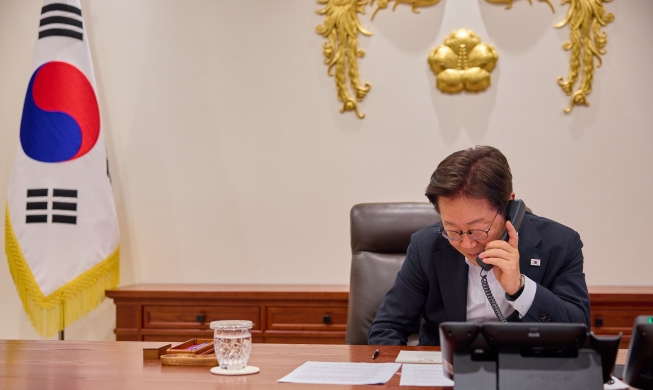Kim Hong Hee
Commissioner General, Korea Coast Guard
As the old saying goes, a friend in need is a friend indeed.
This year marks the 70th anniversary of the outbreak of the Korean War. During the conflict, Ecuador generously provided supplies to the Republic of Korea including rice and medicine to alleviate the suffering of Koreans rather than turning a blind eye to them. To many Koreans, the heartwarming gesture of a country around 17,000 km away served as a ray of hope. Ecuador was also the first country to import six Hyundai Pony cars from Hyundai Motor in 1976, when Korea was undergoing rapid industrialization.
I believe that Korea achieved the "Miracle of the Han River" thanks to the seeds of compassion it received during difficult times.
The Galapagos Islands, a UNESCO World Heritage Site, and their surrounding waters are home to some of the world's rarest animal and plant species thanks to the extreme isolation of the islands. Unfortunately, their fishery resources are being threatened by illegal fishing by foreign vessels. To combat this problem, Ecuador is in dire need of patrol vessels to protect its precious marine environment.
On May 7, 2019, Korean Prime Minister Lee Nak-yon paid a visit to Ecuador to sign a memorandum of understanding on bilateral cooperation between the two countries. On the sidelines of his visit, the donation of decommissioned patrol vessels by the Korea Coast Guard (KCG) was also discussed. At the time, Rear Admiral Darwin Jarrin, commander general of the Ecuadorian Navy, requested the KCG's help with the lack of patrol vessels. Korea took this opportunity to finally repay Ecuador's generosity based on bilateral friendship and trust built over the past 70 years. The KCG pledged to donate two of five vessels slated for retirement in 2019 to Ecuador.
The unexpected outbreak of COVID-19 early this year, however, hampered the transfer. Due to the pandemic, Ecuadorian maritime officers could not visit Korea to receive training and education on the operation of the vessels. Also canceled was a trip to Korea by the general commander to sign an agreement with the KCG on the donation. But as the saying goes, where there's a will, there's a way. The KCG resolved these problems by replacing the accord's signing with an exchange of international mail and filming the training content for Ecuadorian officers to be delivered to Ecuador through the Ecuadorian Embassy in Seoul.
On November 13, 2020, a 30,000-ton carrier ship carrying the vessels 302 and 303 departed from the Port of Masan in Korea to Ecuador. Both patrol ships had completed their missions of protecting Korea's marine resources and safeguarding maritime sovereignty surrounding Jeju Island. They will continue serving the same cause after arriving at Guayaquil Port in Ecuador.
I hope that the donation of the retired KCG vessels further strengthens diplomatic relations between Korea and Ecuador and symbolizes the friendship and hope of the Ecuadorian people.
Most popular
- Council sets minimum hourly wage in 2026 at KRW 10,320
- Songs from 'KPop Demon Hunters' dominate global Billboard charts
- Songs from animated K-pop film rule Spotify daily chart in US
- 28th annual Boryeong Mud Festival to offer more night events
- Exhibition 'K-Comics World' hawks webtoons in 5 countries
